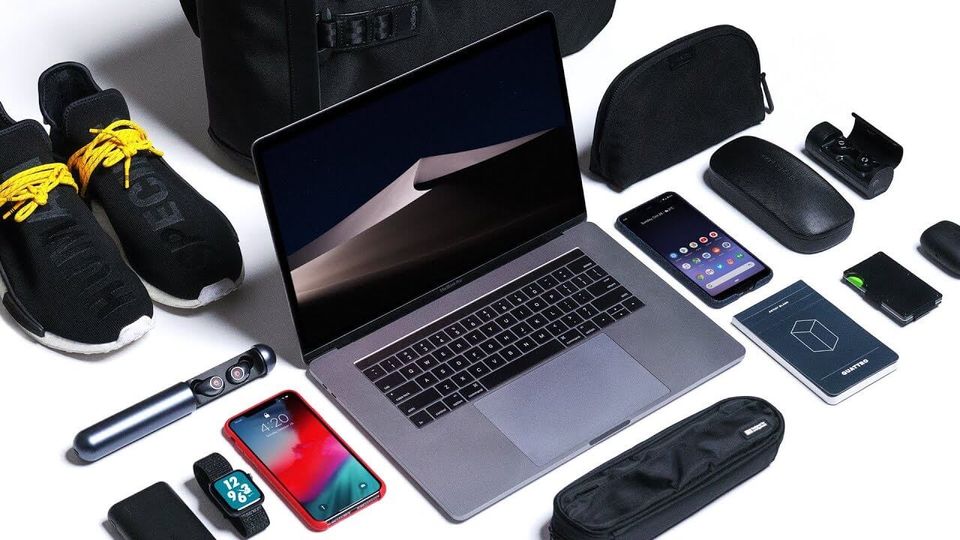My thoughts on minimalism

To understand the mindset of a minimalist, consider the following exercise. Imagine that you had unlimited money, but there’s a condition: you must carry every physical thing you own with you, wherever you go. (And please, in accordance with the spirit of this mental exercise, avoid workarounds such as hiring people to carry your things for you.)
Given the condition above, what possessions would you choose to own?
I’ve thought hard about this, and my own list is below:
- Identification documents (passport, birth certificate)
- A very good backpack (the best money can buy)
- A set of Apple products (iPhone, MacBook, Watch, AirPods) and relevant power adapters
- Two pairs of eyeglasses
- Electric toothbrush
- Small bills in several major currencies (mostly USD) if I’m traveling
- The clothes and shoes I’m wearing
… That should be everything, since I can’t own things like a house, a car, kitchen utensils, books, collectibles, or any other clunky permanent possessions. Perhaps you've thought of some other things I could put in the backpack since it's probably nowhere close to being full. That said, if I had unlimited money, I think my priority would be to lighten my load as much as possible, and not to fill my backpack to its maximum capacity. For example, I’d have no use for diamonds or luxury items since they’d just weigh me down, and I wouldn’t carry around extra clothes or consumables like toothpaste and shampoo since I could just purchase some whenever necessary.
Of course, due to the above, I’d most likely want to live in an urban area where I can rent a furnished apartment, get around via subway or taxi, eat at restaurants, buy a change of clothes, and generally have things to do.
Though the above scenario is contrived, I think it shows that we actually need very few possessions to lead a functional life. Other necessities can be leased or otherwise accessed without requiring permanent ownership.
Now let’s return to reality, where our funds are finite and we aren’t limited by what we can carry. If we considered things from a purely utilitarian perspective, the purpose of purchasing any additional permanent possession should be to lower our expenses or make our lives more efficient. We might invest in a house to avoid paying rent, outfit a kitchen for cooking and to avoid potentially unhealthy meals in restaurants, or buy extra items of clothing for some diversity. We might also stock up on consumable household items for the kitchen and bathroom such as cooking oil and toothpaste. I can understand and get behind these choices.
“Everything else”, however, is where I think we can do better. I'll start with an example that's close to home. We're living with my mother-in-law in my wife's childhood home, and there's so much stuff here that even the storage space in the attic is overflowing. Among other other unidentified items, I count at least two wooden wardrobes filled with old clothing, two huge trunks, and at least a dozen large unlabeled cardboard boxes.

The image above shows a section of some bookshelves at our home. What's particularly amusing is the entire series of 罗马人的故事, missing volume 2, but otherwise in pristine condition and still in their original plastic shrink-wrap. I suppose there's no rational argument for why we haven't yet sold these books on 闲鱼 or donated them to the local library.
However, it seems that there's a "human" reason behind our general reluctance to throw or give things away. Numerous experiments have found that for most people, the pain of losing something is roughly twice as strong as the pleasure from gaining that same thing. In other words, once we purchase something, our ownership of it immediately doubles its perceived value for any scenario where we lose it, though the actual value did not change. This at least partially explains why hoarding is so common, as widespread consumerism combined with a general tendency towards loss aversion has resulted in the prevalence of "stuff" in every home.
"Having too much stuff" is definitely a first world problem (ie. not a critical issue and probably not worth solving in general). I think minimalism isn't for everyone, and I won't attempt to show that it is. It works for me and improves my level of happiness because I prefer simplicity and I'm continuously working on lifestyle reduction. I once came across the saying, "an uncluttered home is indicative of an uncluttered mind", which has always stuck with me.
In any case, if you're not sure about minimalism but want to try it out, I have some advice that I'll share below.
- Before you purchase a permanent possession (that's not also a financial investment), double the price in your mind and ask yourself if you'd still buy it at the new price.
- Try traveling for at least two weeks with just a backpack. Avoid checked baggage - it gets lost easily, and it's difficult to transport especially in cities with incomplete or nonexistent handicapped access.
- Keep the 10-20% of your clothing and shoes that you wear 80-90% of the time. Sell or donate the rest.
- Consumables are okay if you have a place to store them. There's usually no harm done by purchasing some extra bottled water and toilet paper for a rainy day (an apt metaphor considering the current crisis in Henan province).




